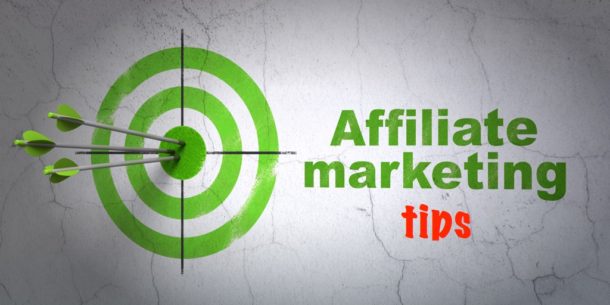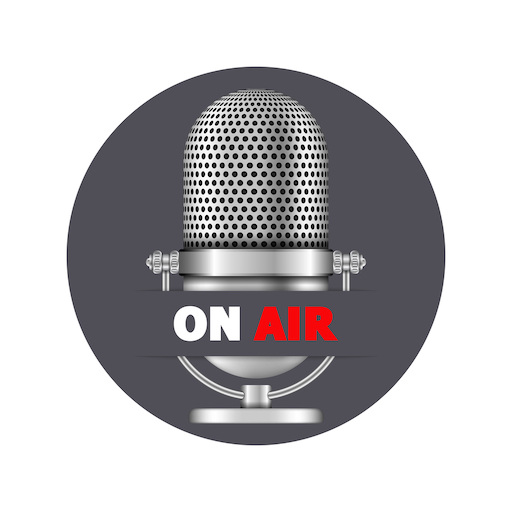Transcript continued from the Episode 016 Show notes
The Backup Disaster
I guess the topic I’m going to tackle first, I’ll take them a little out of order from what I told you before. I am the IT Director of my household. We have multiple computer users here, the most important computer user in the house of course is my wife. She is an awesome photographer and she takes lots of pictures, in 2011 she took 40,000 pictures.
We’re good at taking pictures, we’re less good at deleting them. So what that means for me is as the IT guy in the household I’m responsible for data storage and management, it’s data warehousing essentially. So I have her all set up with an iMac, she’s got the fastest iMac that is currently made in production today, that’s the i7 four core machine. And she’s got a couple of ray-to-rays set up on that machine.
One ray-to-ray is set up to hold her pictures and the other ray-to-ray is a bigger ray-to-ray that runs Time Machine for her. And in case you don’t know about ray-to-rays, ray-to-ray is this idea where you can take multiple disc drives, in the same box usually, and you can configure them either to be very fast or to be very safe. Sometimes you need very fast, like when you’re manipulating a lot of data. Sometimes you need very safe, like when you’re trying to stay married by not letting anything happen to your wife’s pictures.
Well, over the years I’ve tried multiple solutions for this. I have network attached ray-to-rays and firewire ray-to-rays and various things that I use. Around Christmas time I was having some trouble with my network based storage. I use the Readynas storage from NetGear – and that’s an excellent product by the way, I love the Readynas ray-to-ray. But, I had some configuration problems and it was cranky with Time Machine and Lion update of the Mac operating system got me out of sync with the firmware on the ray-to-ray.
Long story short, I had a small gap in my backup plan because I was working through some software issues. I wasn’t too worried about it, of course, because I have these rally high end Hitachi G-ray drives that she was storing her data on.
Well, right at the same time that I was having all this trouble with Lion my Time Machine back up went offline because of that and the Hitachi G-ray drive crashed. This was right after Christmas and of course in addition to the Christmas pictures, as it would happen, my son’s birthday is in January. So here are, of all the pictures to lose, Christmas pictures and birthday pictures. My wife is just looking at me like, “Certainly you’ve got a backup of this, right?”
The truth of the matter is I did have a redundant backup strategy. I use the guys at BackBlaze and these guys are awesome. They’re former Mac guys, although their stuff works great on a PC from what I understand. This thing lives on your computer and it pushes data to their backup servers. It’s very affordable and their tech support is absolutely fantastic.
So I got on the phone to the BackBlaze guys and I asked them to send me a hard drive with all of my data, which they did – that’s part of the service that they will provide for you. That was really cool. The FedEx guy came and he handed me a hard drive that had all my data on it and that was just great.
I recovered most of my pictures that way. There were a few that had not been pushed up to the BackBlaze servers yet, it’s an upstream upload so it’s a little slower than something like Time Machine, but I certainly got most of the stuff that I was concerned about.
So I highly recommend BackBlaze. I’m a user and a happy user. We use it on several of our computers. If you want to visit BackBlaze through my affiliate link you can certainly do that at MasonWorld.com/backblaze. It’s a great product and you should use them no matter how you get there. It’s really good stuff and I recommend them highly, they do a really good job there.
Internet Experiments and Keyword Canine
I’ve got to tell you about this experiment that I’ve been running this week. I’ve been getting these emails from my two friends – I’ve talked about them a lot, had them both on the podcast here – Josh Spaulding and Jon Leger. As you know, Jon lives here in the Dallas metro area, and Josh and I have been friends for a long time. I’ve never actually met Josh face to face, but he is in Indiana and he’s a very successful internet entrepreneur. He is a Colts fan, which confuses me, but we work through that.
In any case Jon and Josh are collaborating on a new product called Keyword Canine. This is a product that takes two products that they had been working on separately, Niche Horde on Jon Leger’s side and Hot Niche Spy on Josh Spaulding’s side, and basically they’re trying to build the ultimate keyword discovery tool.
It’s very cool because one of the things that it does is it creeps around the internet and it looks for undiscovered untapped keywords and reports those to the user, which is very cool. So Josh and Jon have independently had this tool find keywords and they’ve built websites and gotten first page Google rankings within a few weeks.
So seeing an opportunity to help Josh and Jon, because I really believe you get everything you want in life by helping other people, I called up Josh and I said, “If you’ll throw me some keywords to pick from I will pick one and I’ll build a site my way using that keyword and we’ll see if it ranks on the first page of Google in the same amount of time. And if it does you’ll have independent verification from an independent source.”
Of course, as an affiliate marketer I’m also thinking if I can test this thing and show that it really works the way they say it does that’s a great product for me to promote on the website. So I have lots of reasons to want to help someone and it is important to help people profitably, is what I usually say.
So Josh sent me some keywords and I registered a website domain name. I’ll reveal that next week when I see what’s happening, but I don’t want to skew the results by telling you just quite yet exactly what it is. But, it’s kind of a goofy keyword on a goofy topic that’s farming related. It’s not something I would normally pick, it’s not something that I would normally be interested in, but it is very interesting from an SEO perspective.
So I registered the domain name, I put up a site, I ordered seven or eight articles for that, I got some other very high quality unique PLR. That’s something we can talk about in another episode is some of the sources I have for private label rights material.
We got a site up with a policy disclaimer, privacy, customer header, all the kind of things that Google is looking for in the post-Panda update, which we’re going to talk about in the next segment. I embedded some YouTube videos and did some other things that Google likes and started building some backlinks to the site.
The site was indexed after one day and it looks like we’ll see what happens with the rankings. So that’s a really interesting experiment that I’m going to run and I will reveal to you the whole thing, all the details, in a week or two. I’ll let you know exactly what happened and whether or not this keyword tool over at KeywordCanine.com is useful.
You can also see that because I’m aware of this product launch, just to give you another little insight in the kinds of affiliate marketing that you can do, once KeywordCanine.com came to my attention I noticed that the domain KeywordCanine.net was available, I registered that domain name and I am currently building a site, because when this product launches I know people will be searching for Keyword Canine in Google.
They’ll be searching for keywords like “Keyword Canine review,” and “Keyword Canine bonus,” and I’m going to have some honest but very helpful and accurate information out there about Keyword Canine. My hope will be that as the big boys start to promote this product I’ll get some traffic that will cause my affiliate link to be used to buy the product just by throwing up this website and ranking for the keyword.
I’m currently ranking number one for Keyword Canine and some other keywords, like Keyword Canine Bonus, at least I am here in Dallas. So that’s pretty cool. That’s the kind of thing you can do when you know about these product launches or when you want to go after a particular product.
All About Google Panda
As you can probably hear, I’ve still got my cough and that’s driving me absolutely crazy, but eventually this too shall pass. The next thing I wanted to talk to you about was Google Panda. That’s something that I’ve been thinking about a lot.
When I first started out in internet marketing one of the things that I was interested in for whatever reason was building very thin websites to snipe keywords and get traffic for Adsense. So I’d build these very thin and not very useful websites that had three or four, maybe five pages of content, and the goal would be to work for one keyword and to get someone onto the website through Google and off through Adsense as fast as possible.
Now, the truth of the matter is when you think about that kind of website that doesn’t really help anyone. It doesn’t put information out there that’s useful to people. Generally the quality of the articles that I was creating wasn’t stellar. It wasn’t terrible, but it just wasn’t the kind of thing that if you really searching about information that you’d want to find. It was okay, it was acceptable to Google, but I kind of knew in my heart of hearts that this was not the kind of website that makes the internet a better place.
I really think that this Panda update, which I’m sure you’ve probably heard about from Google that happened in the late spring and early summer, is really targeted at that. People hate Panda because it affects their websites and you hear a lot of things about evil Google doing all these things, but it’s really an effort to make sure that the search engine results that they get are good for the people who are typing them into their search engine.
Because they know very well if they are not offering the best search results that people are going to try other search engines like Bing and they don’t want to lose market share to those guys. So they need to offer the best user experience they possibly can.
By the way, that’s the exact same thing you should be doing in your internet business is trying to offer the best experience you possibly can for people that are using your website.
So I thought I’d talk about Panda a little bit. I think a lot of people really don’t completely understand what it is, so I’ll tell you what I know about it.
This thing was first talked about after the first of the year and late January and early February (2011) it was rumored that they were experimenting with it and I think maybe they even released it in limited basis. Usually Google will do that, they’ll test an algorithm on a subset of the search engine results and make sure they know what they’ve got before they break the whole internet by releasing something they didn’t really understand.
The target for this has always been these low quality sites. They’re trying to get higher quality sites, whatever that means. About that time people started talking about how certain sites were ranking better than others, there was a lot of discussion about how this was affecting news sites which seemed to be getting priority. A lot of people think that’s probably because Panda pays attention to the date when a page was published.
There are some good things and bad things about that. I think a lot of pillar content, excellent content, might be kind of old because some things don’t really change. So a lot of people have complained about Panda that it ranks newer less quality content over older established content sometimes, because that older content has an earlier publication date. So that’s something to worry about. I’m sure Google will work on that.
Anyway, this Panda thing is interesting for two reasons. One is this seems to be one of the first Google updates that I can remember, or ever or in a long time that targets a site as much as it does anything else, it really looks at sites.
By the way, it’s called Panda because that’s the name of the engineer that came up with the algorithm.
Basically what they did was they had real humans rank a bunch of sites. I mean thousands and thousands of sites. And at one point I think the guide for these reviewers was actually leaked out onto the internet. They recorded whether or not they’d go back to the site, what they thought about the design, how fast it loaded and so forth, whether it looked trustworthy, and then they fed that human calibration information into an artificial intelligence algorithm.
They basically told Panda, “Here’s thousands of websites that have been reviewed by real people, here’s the websites. You go look at the websites, Panda algorithm, and you figure out what it was that those people saw and you go do that to all the sites on the internet.” It’s basically this idea of human intelligence in an algorithm or artificial intelligence.
So that’s how Panda works. Of course that has some unexpected results from time to time. I think one of the unexpected results that people talk about a lot is that new content, even when it’s not as good, can outrank old better content. But, that’s the idea of Panda.
Now, what this tells me is that because of all this work that Google is putting into this kind of effort to rank quality sites, you really need to be paying attention and creating sites that people want to go. You need to make the internet a better place, you need to build quality websites.
A really good example is the kind of niche website that Pat Flynn has built over at Smart Passive Income in the Niche Site Duel. That’s something that I’m going to be talking about pretty soon again, because my Niche Site Duel site, which I have done nothing on in over a year, is currently ranking number seven for its keyword. I’m going to be working on getting that up to the top of Google and making that site profitable this year and we’re going to be talking about that right here on the podcast.
It’s really important that you do what Pat did and create a really vibrant valuable site that people would go to anyway, even if it wasn’t the first search engine ranking. You want a really quality site that people are going to want to go back to.
So if you’re thinking about making money on the internet and you want to do that through ranking in Google, my best advice to you is not to do something particularly to defeat Panda or any of these other updates, but to build quality sites with great content that people really want to visit.
No matter what Google does in the long run, if you build sites that people want to go see they’re going to be compelled by the market to make sure that your site runs well. After all, Google has to keep their customers happy by returning the best sites in their search engine. And you can build those sites and make sure that you’re part of that equation no matter what update comes down the pipe.
Trading Hours for Dollars and Ebook Writing
So we’re going to run a little long here. I’m trying to get this show into a 30 minute format, but we’ve got one topic to go and then I want to get into this interview with Cliff Ravenscraft.
The topic that I wanted to talk to you about was a brief conversation that I had by email with someone who was sent to me by Josh Spaulding over at EthicalIM.com. Josh said, “If you’re interested in writing an ebook talk to Mark, he knows about writing ebooks.” And I do know a little bit about that, I’ve done some ebook writing. Josh has done a lot more of it, interestingly enough.
This person that came to me was an accomplished ghost writer who was basically recognizing that she could be writing for other people or she could choose to write her own stuff. Her question for me was, “Is it worth it to write ebooks? Can I really make money that way or should I keep writing for other people?”
So three really basic ideas around this. First of all, if you are needing to make money online – people come to me and they say, “I need to make money online and I need to do it right away.” My advice always to make money quickly on the internet is to trade hours for dollars.
Figure out what it is that you can do, go to forums and other places where people are asking for that kind of work and go do that kind of work. If you’re a writer, go write. If you know how to do SEO and blog promotion, go do that. If you know how to do graphics, let people hire you for graphics. Put your stuff out on Fiverr.com, that kind of thing.
You can be making money this afternoon or tomorrow if you have a skill that can be marketed on the internet. You can go register at one of these places where people bid to do jobs and you can be making money by tomorrow. So that’s a great idea and you can build a really good business based on that kind of model.
But, ultimately you’re trading dollars for hours and ultimately you’re going to run out of hours in a day. So if you want to scale a business what you want to do is start adding in passive income. So my advice to a writer would simply be to absolutely figure out what it is that you want to write about, maybe it’s something that you’re passionate about, maybe it’s something you know about, figure out something that there’s a market for and write that ebook and get that ebook out there.
Start converting your business from where you’re trading your time for money into something with passive income where you spend hours doing something once and then you get paid for it over and over again. That’s always my advice to these VA type people.
At first, dedicate 10% of your time. You’ve got to feed your family, you’ve got to pay the bills, you can’t just stop doing your dollars per hour thing, but you can dedicate a certain amount of time every day to building passive income in your business. That’s my advice to those sorts of people.
So she asked a very intelligent question, “How do I go sell this thing if I don’t have a big list of people to market it to?” That reminded me of two things. One is that is the biggest part of internet marketing. Internet marketing is two words, but marketing is 85% of the importance. The internet part, the part where you create the product, that’s really critical, but marketing the product is the hard part.
So writing ebooks, pretty easy for most people. I think most people either really can write or at least they think they can, and they can create an ebook. Marketing an ebook, that can be the hard part. But, let me tell you, that’s where affiliates come in.
If you create a really solid product and you have an affiliate program in place for that product where people can sell your product, promote your product, and make a healthy commission, you can find people to sell that product. You can find bloggers and other people who have massive email lists, you can make them a good deal, do joint ventures, have them mail to their list, buy solo ads. You can market that product and there are lots of ways to do that.
So yes, you can make money with ebooks. Yes, it’s a good idea. And yes, it’s always good to build these kinds of automated income streams that are eventually passive. That was my advice to her and I thought it might be useful for you.
Introducing Cliff Ravenscraft…
Now we’re going to get into what’s going to be my favorite part of this episode, no doubt. This is part one of my interview with Cliff Ravenscraft. Now, Cliff is The Podcast Answerman, but he also has an entire podcasting network over at GSPN.com. He is a guy who is doing things right.
I’ll tell you what it is about Cliff that really sets him apart from a lot of the other people that you’ll run into on the internet. Cliff is all about community. When he talks about building brands and building podcasts he teaches people to build relationships with community and he does that essentially by helping people.
This is right up my alley, this is exactly my philosophy on life that you get everything you want in life by helping other people get what they want. It’s a thing I stole from Zig Ziglar back in high school and I think about it almost every day. This is the right way to think about things and this is the way Cliff runs his business.
He generates an enormous amount of value, he gives a ton of that away for free, and he helps people profitably. This is a really good way to run a business. So without further ado I’d like to kick things off with part one of my interview with Cliff and then we’ll have part two next week on the Mason World Late Night Internet Marketing Podcast.

Mark: Hi, I’m back on the mike and very excited. I am on the mike that I got because of the greatness of Cliff Ravenscraft. You have heard me talk about
Cliff.
He works with passion. He does things that he believes in. He has about 2,700 podcast episodes in the can and out on the internet. I’m sure he can tell us the exact number in a minute. Cliff, how are you, sir?
Cliff: I always say this. I’ve never been better. It gets better every minute of the day.
Mark: Isn’t that great? Isn’t it great to operate from a place in your life where you’re fired up about getting up in the morning and doing the do that you do? You can’t wait to get up and do it again the next day.
Cliff: It is a lot different than my last few days as an insurance agent a couple of years ago. I dreaded waking up in the morning. All I wanted to do was go to bed.
Now sometimes I have a hard time staying in bed as late as 6:00 in the morning. I’m hard pressed to go to bed on time. I have to force myself to get in bed around 10:00 or 11:00.
Mark: I’m familiar with your story. I’m a member of your GSPN community. I don’t get the opportunity to spend as much time there as I’d like. I have followed you.
I’ve seen talks you gave about your story with Stephanie. I’m excited about having you on the podcast. Your story resonates with what I’ve talked about a lot lately on the podcast. That’s the issue of the difference between working on something you’re passionate about and not.
There are things that come to you when you try to help people when that is your focus. I wanted to talk to you about that a bit in general and your journey. I want to help people understand that it’s possible to make money on the internet without selling “make money online” products.
That’s another thing I often talk about. Once we get that shaped up, I want to talk about how you draw that line. You give away so much content but you have fantastic paid products.
You have coaching products and other products some of which I have purchased. You have an affiliate business with equipment sales. I want to talk about how you balanced that and how you draw that line. Does that sound good for this evening?
Cliff: Absolutely, as long as you steer by asking the questions so we can keep on track. Otherwise, I’ll be all over the place.
Mark: Yes. Do you have an up-to-date count on the number of podcasts that you have personally uploaded to ITunes?
Cliff: As far as what’s publicly made available to the entire world, I’m loading the spreadsheet right now. There are 2,639 podcasts.
Mark: I was off by about 50.
Cliff: You’re probably off by 50 because in interviews and other places I’ve mentioned that I have a minimum of 2,700 episodes. I have them but they’re not all publicly available. There are a couple of podcasts I’ve produced over the years that have been taken offline.
They weren’t the kind of material I want out there. There are 60 or 70 episodes of an old podcast that I called Net Junk years ago. There are a couple other TV show fan podcasts that didn’t stand the test of time.
There have been some taken off. You were right. There are more than 2,700 episodes individually.
Mark: This won’t completely make sense to our listeners until you tie this back in. I told my wife that you’re doing a podcast about Hunger Games and she was very excited. I never heard of Hunger Games until you told me about it.
Cliff: Of course she’s excited. If you know anything about Hunger Games you know that having a podcast about Hunger Games is the next best thing. You are dying to get more content of any nature related to this thing.
For example, I don’t know if it’s a top seller but it’s selling thousands of copies every day. It’s called The Girl Who Was on Fire. It’s a collection of essays about people talking about this story.
Now it’s an e-book. It’s selling like wildfire. It’s one of our more popular podcasts at the moment. It seems to be etching up to where our Lost podcast was years ago.
Mark: Let’s rewind. I will have links in the show notes to this video you did at Blog World for people who want your entire story. It’s a fantastic story. I feel like I know you and Stephanie. I have this inside information.
I wanted to rewind a bit and get the condensed version of where you were and how you were feeling just before you left insurance. I want to talk about how you made that transition into podcasting on blind faith. Can you tell us about that?
Cliff: Sure. I will give you a condensed version. You can ask me to elaborate more if you want. I will give you the quick down and dirty version. Then I’ll get into the question you asked.
I was married in 1996. I had been approached by my parents to work for them in their insurance agency. They needed someone to help hook up their computer systems.
I said, “As long as you promise I’ll never have to sell insurance, I’ll come and help get these things hooked up. That’s no problem. I’ll manage your computer network.” Shortly after that I felt the call to ministry.
It was before that. I felt the call to become a full-time pastor or I was told in the church that’s how it felt to be called to ministry. That’s the path I went down. I had a feeling one day I would leave my career as an insurance agent to go into ministry full-time.
Those are important key elements to keep in mind. I was an associate pastor of a small Nazarene church. I left that to do ministry as a small groups pastor in a very large church. I did that as an unpaid position while I was selling insurance.
That gives you a bit of background. I worked and sold insurance. I did all the computer work I could do. I was bored at the insurance agency making this money but not doing anything.
I started customer service work. I got my license over time. I started making lots of money. Before I left I was making $87,000 a year. That gives you 11 years of my life. That was from the time I got married until I left my career in insurance.
In December of 2005 I discovered the world of podcasting. I was blogging about the TV show Lost that my wife got me into. I didn’t get into it until Season Two. I was sitting on the couch making fun of her for watching this silly show.
All of a sudden I was hooked. I thought, “Wait a second. There’s mystery here. This is exciting. I’ve never seen storytelling like this.” I began to have theories based upon what they were showing in the TV show. I started blogging about that.
My blog readership, where I was talking about silly stuff in my life, went from 300 views in a single month to about 17,000 views in a single month. I was notified by someone that Entertainment Weekly picked up one of my blog posts and linked back to it from their website.
At the same time I was addicted to Lost I discovered the world of podcasting. I listened to other podcasts out there. I found some other Lost podcasts. I called in on their voicemail feedback hotline. I remember the first time I called in and left a theory and how I felt when I heard my own voice on their show.
This show was being broadcast all over the world with thousands and thousands of fans of the TV show. There’s my theory. Everyone is hearing it. I remember how I felt.
Some of the different Lost podcasters said, “Cliff, you should start your own Lost podcast.” That got me thinking, “I would like to do a podcast.” I’m a technical-minded person. I’ve always been a computer geek.
I remember when I was a kid I had a CB radio. I used to broadcast myself through the tri-state area. I ran my own CB radio station which was against the law. I don’t think you were supposed to broadcast without letting off the mike for that long, but I did. I love to talk. I thought, “I’m going to start a podcast.” I didn’t know what I was going to podcast about. Lost was one thing.
I thought I might also talk about technology and my faith. I wasn’t sure. I wanted to leave it open. I called it Generally Speaking. That was the podcast. The idea was that you would subscribe to the podcast.
If you were interested in any of the topics you would know if you looked at the episode title. The title of the episode would either start with Lost, technology or faith. If you saw that word in front of the title it would tell you what the topic of the day or episode was.
The first one I did was Lost. I was shocked by how many people immediately gravitated toward that first episode. People were begging me not to talk about anything else other than Lost. I was shocked that people were interested in listening to me talk about anything, especially this many people.
I gave into their desire. I said, “This is the weekly Lost podcast of the Generally Speaking production network.” I didn’t have a network at the time but I knew I was going to create other podcasts.
I had so many other things I wanted to talk about. By the third episode, that podcast had 14,000 subscribers. It blew me away. It really did.
Mark: What time frame are we talking about?
Cliff: This all happened in December of 2005. December 16, 2005 was the first episode. I had 14,000 subscribers by the first week in January of 2006.
Mark: Were you making any money from podcasting at this point or was it still a hobby for you?
Cliff: This was a hobby. I started all of it with $35. I went to Best Buy and got a Logitech headset. It wasn’t even USB. USB was just coming out for headsets at the time.
It had two 1/8 inch plugs. One plugged into the mike jack. One plugged into the headphones jack of my HP laptop. I threw on the headphones that had a microphone on the side.
I started talking. That was my Lost podcast. We had people who loved our content. They said, “I would love if you could get better equipment.”
I said, “That would be great. I will have to save up for it. I definitely want to improve things.” The next thing I know they said, “How much is it? I’ll send you a check.”
Mark: Wow.
Cliff: I said, “OK.” We probably brought in about $800 to upgrade equipment within the first three or four months. As money came in, we upgraded. We were taking donations.
Podcasting was in its infancy. It was brand new. People were listening to podcasts. They were starting up new podcasts every day. The content wasn’t always very good.
Some of the content was good, not all of it. If you listened to a podcast in 2005 or 2006 the audio quality was horrendous. People were eager to hear better content. We upgraded as we could.
As our audio quality increased, the devotion and loyalty of our audience also increased. Everything got better after that. It wasn’t about the money. It was a hobby.
It was because I loved this TV show. I did. I loved it. I loved talking about this TV show. The people in the Northern Kentucky and Cincinnati area, the friends I go to church with and the people I see at work watched the show casually.
They are all sick and tired of hearing my talk about it. They don’t want to hear me say another word about the TV show Lost. They said, “No, Cliff. We didn’t see that. No, I didn’t go back and watch it frame-by-frame. No, I didn’t see that book. Wow, that’s really cool, Cliff.”
I stopped talking about it with my friends. I could get behind a mike and talk about it. I could spend three or four hours researching hidden Easter eggs, clues, reading Wikipedia articles and reading book descriptions based upon the books that are hidden and tucked away for the most sincere fans.
I would see those books lying out in the open. I would read the descriptions to see how much that mimics what’s going on in the TV show. I would spend hours doing that.
Then I would get behind a microphone and share what I learned. I had thousands of people hanging on every word. They took what I gave them and went to work the next day to show off all that they know. They are blessed enough to work with people who love this show.
Mark: You had a passion for this Lost phenomenon. You found yourself wrapped up in it. You were in a Lost tsunami with millions of other people. I hear it in your voice. This turned into a passion for communicating with people by podcasting.
Cliff: Yes, exactly. It was all about communicating with people. It wasn’t just one-way communication. This is how things got really wild for me.
This is why I went through the trouble of giving you that back story. There was an episode of Lost called The 23rd Psalm. As you might imagine, this episode had religious themes and elements.
It was never a desire of mine to say, “I’m going to talk about Lost. I’m going to be different than the other ones because I’m going to talk about it from a Christian perspective.” No way. That was not my goal.
I said, “I’m one of you guys. I happen to be a Christian. I’m a devoted fan. I’m here to geek out.” They had the episode called The 23rd Psalm. They had a character playing a priest on the show.
He quotes the 23rd Psalm and misquotes it. I believe it to be an intentional misquote. I explained why I thought it was an intentional misquote. There were some other stories from the Bible that were shared.
I talked about some context of those stories and how I believe that leads into other themes. I talked about how the story from the Bible could be a clue. I talked about if you know about Aaron, Moses and how this or that took place.
That podcast was so well received. We weren’t “preachy.” I received e-mails, not just one or two. I received lots of them saying, “Cliff, I listened to this episode. I have the suspicion that you’re a Christian. Am I out of line here?”
I would say, “No, you’re absolutely right. I am a Christian.” Then I would get four and five-page long e-mails. It would detail their life. They would talk about how they grew up in the church.
They were burned out. They left the church. Now they’re struggling. They want to reconnect with God but don’t know how. They’re skeptical from the experiences they had.
I had people write me and say, “I’ve grown up being told that Christians are horrible. The only Christians I’ve ever known don’t own a television. Here you are. You’re a Christian. I feel like I can relate to you.
The way you talk with people is different than what I’ve experienced from a Christian. I want to tell you that it’s nice to see Christians coming out of the Dark Ages.” I realized that this is more than just podcasting. This is more than just a hobby.
My first thought wasn’t, “How can I make money from this.” It wasn’t that at all. It was, “Wow. How can I continue to use this to create real relationships with people and make a positive difference in people’s lives?”
You’ll notice that I didn’t say, “How can I use this podcast in a way to promote the Gospel of Jesus Christ so that I can convert people away from their sinful lives and devote themselves to Christianity?” That’s not what it’s about.
It’s about, “How can I use this podcast to help other people?” That’s what I feel called to do.
Mark: It’s amazing. Here’s a guy with some facts about a Psalm of David. He has street credibility about the Lost podcast.
He’s able to connect with people and see an opportunity to help people. Your business philosophy turned into helping people. Maybe it was all along.
Cliff: I often say that I left my soul-sucking career in insurance to pursue podcasting full-time. It’s my true passion and calling. I want to stress that my soul-sucking insurance career was wildly successful.
I was extremely successful as an insurance agent. The reason why I was successful was because my number one goal was not to make the next commission. It wasn’t to win the next contest. It was always that I wanted to help people.
I love my dad. My dad is a great person. If I had a nickel for every time I was yelled at for spending more than an hour with a client in the office, I’d be a rich man. There was a time that I spent three and a half hours with one client who came in for a life insurance policy. I taught them how to become debt free.
Mark: You sold them term insurance and you taught them how to be debt free.
Cliff: That’s exactly what I did. They came in for a universal life policy. I pulled up Dave Ramsey’s website. I told them how my wife and I are working to become debt free. It is possible.
I said, “You can save yourself a lot of money. You can take this extra money you would pay me. Instead of me making all of this money, you could put it in a bank account.
If you continue to do this on a monthly basis every month for the next 40 years, this is how much money you would have. Do you see how you’d have your own life insurance policy if you did that?
Until you get to that place, do you see how you’d have this policy for only $10 per month?” I got a lot of referrals for life insurance.
Mark: You taught them about gazelle intensity and sent them on their way instead of milking them for their retirement savings with a whole life insurance policy.
Cliff: Exactly. You might think that I really enjoyed that job. I did. I loved my career as an insurance agent until I found the world of podcasting. Through podcasting I found my calling in life.
My calling in life is not to be a podcaster. I believe podcasting is here to stay. I believe it’s going to be here for a long time. As far as I know I could podcast for the rest of my life. Who knows what will happen in the future?
My calling isn’t to podcast. Here’s what my calling is. Podcasting helped me to uncover and discover it. My calling, my purpose, the reason I am here and breathing today is because I am called to be a source of entertainment, education, encouragement and inspiration to other people.
I realized with podcasting that I could do in one day what it would take me 10 years to do in pastoring in a small Nazarene church. This is when it comes to the amount of impact and influence that I can share by sharing my life story and what I’m learning online.
My wife and I had become debt free before I left insurance, by the way. We were almost $100,000 in debt. After five years we paid it all off and became debt free minus our mortgage. We shared all of that in our podcast.
Before I left insurance, we not only became debt free but there were people who said, “I want to let you know that I know most people call in Dave Ramsey, but I’m not going to give him the benefit. I wanted to tell you that we’re debt free because of the podcast you did a year and a half ago.”

So we’re going to go ahead and cut it there. Cliff has a lot more to say and we’ll be talking about that next week. Until next time, this is Mark Mason for MasonWorld.com, where we’re building internet businesses one night at a time.













